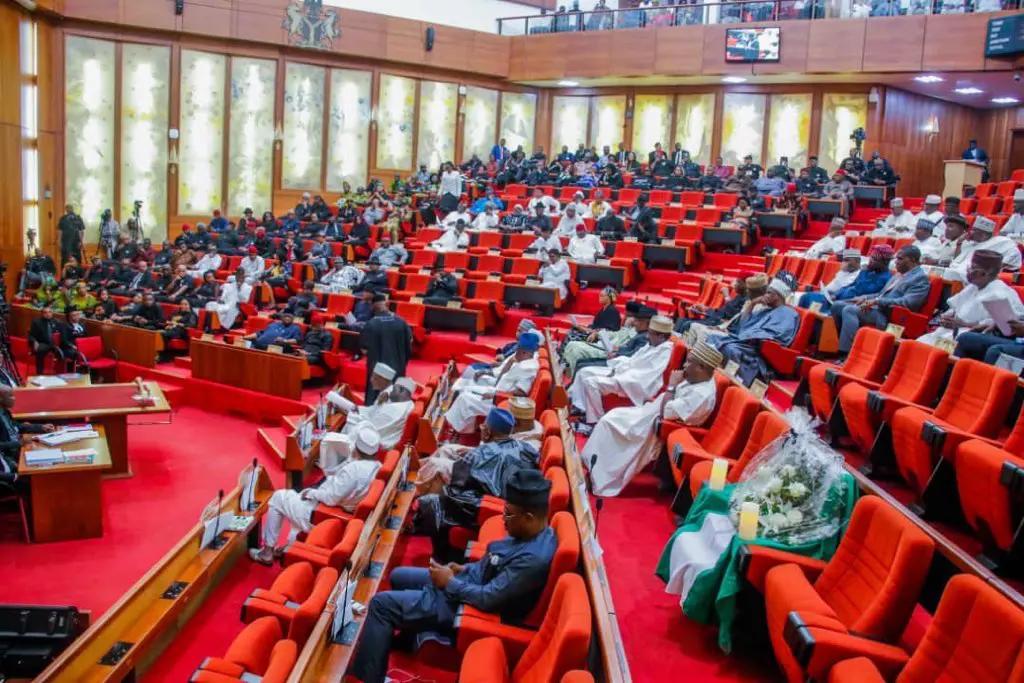
Africa-Press – Nigeria. Political commentators have increasingly linked the growing inefficiency and complacency within Nigeria’s legislative system to the lack of constitutional term limits for members of parliament.
They argue that this legislative loophole has enabled some lawmakers to maintain their positions for decades, fostering a culture of entitlement and political stagnation.
They argue that without a set cap on the number of terms a legislator can serve, some members have turned their seats into near-permanent fixtures, operating with minimal accountability to their constituents.
This situation, they say, undermines democratic values, limits diversity of thought, and hampers introduction of new ideas that could drive meaningful policy reforms.
Experts further contend that this prolonged tenure in office often disconnects lawmakers from the realities faced by the electorate, weakening their capacity for genuine representation.
They argue that often, representatives who have remained in power for multiple terms become less responsive to the needs of their communities, focusing instead on consolidating political influence.
Additionally, they believe the absence of fresh voices in legislative chambers stifle innovation and youth participation in governance.
Political analysts emphasize that instituting term limits, similar to those in place for executive positions such as governors and the president, would promote meritocracy, encourage broader participation in the political process, and help restore public trust in the legislative arm of government.
Speaking to DAILY POST, scholars and political analysts highlighted how prolonged tenures have contributed not only to a lack of legislative productivity but also to increased corruption and an erosion of democratic accountability.
Professor Kamilu Sani Fagge, a political science expert at Bayero University, Kano, noted that while long-term service in the legislature can offer experience and mastery of parliamentary procedures, it also presents serious risks to good governance.
“When an individual occupies a legislative seat for too long, they begin to feel entitled to it, as though it is their personal property,” Fagge said. “This mindset can provoke political instability, especially when others attempt to challenge their dominance.”
He added that the entrenchment of long-serving legislators often blocks opportunities for younger, qualified candidates to contribute their expertise in national development. “Introducing a two-term limit for lawmakers, just like governors and the president, would offer a chance for political renewal and empower the youth to participate meaningfully in governance,” he suggested.
Fagge emphasized that even though long-serving legislators are not unique to Nigeria—citing the United States as an example—the difference lies in the integrity of the electoral process and the power of the electorate.
“In functional democracies, the people truly determine who stays or goes. In our case, there is often a wide gap between the will of the people and the outcome of elections,” he said.
Yusuf Ibrahim Lajawa, a former two-term member of the Kano State House of Assembly, also endorsed the proposal to introduce term limits for legislators at both federal and state levels.
In a phone interview, he told DAILY POST that allowing legislators to remain indefinitely has created a culture of entitlement among some politicians.
“Some lawmakers today treat their legislative seats as though they inherited them. While the current constitution does not limit lawmakers’ terms due to their lack of direct budgetary allocations like governors or the president, the absence of such limits has its drawbacks,” Lajawa said.
He noted that the only way forward is a constitutional amendment to introduce term limits for members of the National Assembly and State Houses of Assembly. However, he expressed skepticism about the feasibility of such a reform.
“The challenge is that it is these same lawmakers who are responsible for amending the constitution. Do you really believe any of them would sponsor or support a bill that limits their own tenure? Reaching the required two-thirds majority in both houses would be nearly impossible,” he lamented.
Since Nigeria’s return to democratic rule in 1999, some lawmakers have remained in office for as long as 26 years, with no indication of stepping down. Analysts argue that this entrenched political culture undermines democratic renewal and public trust in the legislative arm of government.
Nevertheless, many citizens remain optimistic that, in time, a more reform-oriented legislature will emerge—one that creates opportunities for a new generation of leaders to contribute meaningfully to national development.
For More News And Analysis About Nigeria Follow Africa-Press






